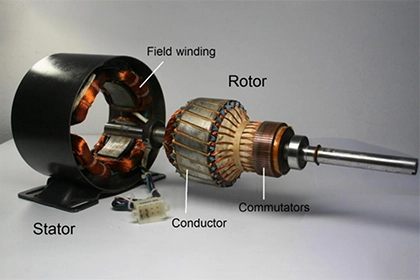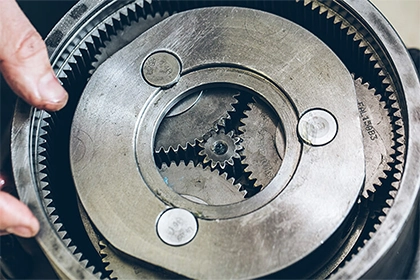
What is core loss in induction motor?
Core loss in induction motor refers to the energy dissipated as heat in the laminated core due to the magnetic field alternations produced by the stator winding. It results in reduced motor efficiency and can be minimized by selecting proper core material and design.
Core loss in an induction motor refers to the loss of power that occurs in the magnetic core of the motor due to the flow of current through the stator and rotor windings. This loss of power is a result of magnetic hysteresis and eddy currents, which cause the magnetic core of the motor to heat up and dissipate energy.
The magnetic core of an induction motor is typically made of a laminated magnetic material, such as silicon steel, which is composed of thin layers of steel that are insulated from each other. The stator windings of the motor are wound around the outer part of the magnetic core, while the rotor windings are wound around the inner part of the magnetic core.
When the stator windings are energized, a magnetic field is generated, which produces a current in the rotor windings. This current, known as the induced current, causes the rotor to rotate, which drives the load connected to the motor. However, the flow of current through the stator and rotor windings also causes losses in the magnetic core of the motor.
Magnetic hysteresis is a phenomenon that occurs in magnetic materials, such as the magnetic core of an induction motor, when they are subjected to a varying magnetic field. As the magnetic field changes, the magnetic domains in the material align and realign in response to the changing field, which causes the material to heat up and dissipate energy. This loss of energy is known as magnetic hysteresis loss.
Eddy currents are currents that are induced in a conductor when it is subjected to a changing magnetic field. In an induction motor, the magnetic core is a conductor, and the stator windings create a changing magnetic field. This causes eddy currents to be generated in the magnetic core, which causes it to heat up and dissipate energy. This loss of energy is known as eddy current loss.
In summary, core loss in an induction motor refers to the loss of power that occurs in the magnetic core of the motor due to magnetic hysteresis and eddy currents. This loss of power causes the magnetic core of the motor to heat up, which can reduce the efficiency of the motor and cause it to fail prematurely. Understanding and minimizing core loss is an important part of designing and operating induction motors.



Leave a Comment